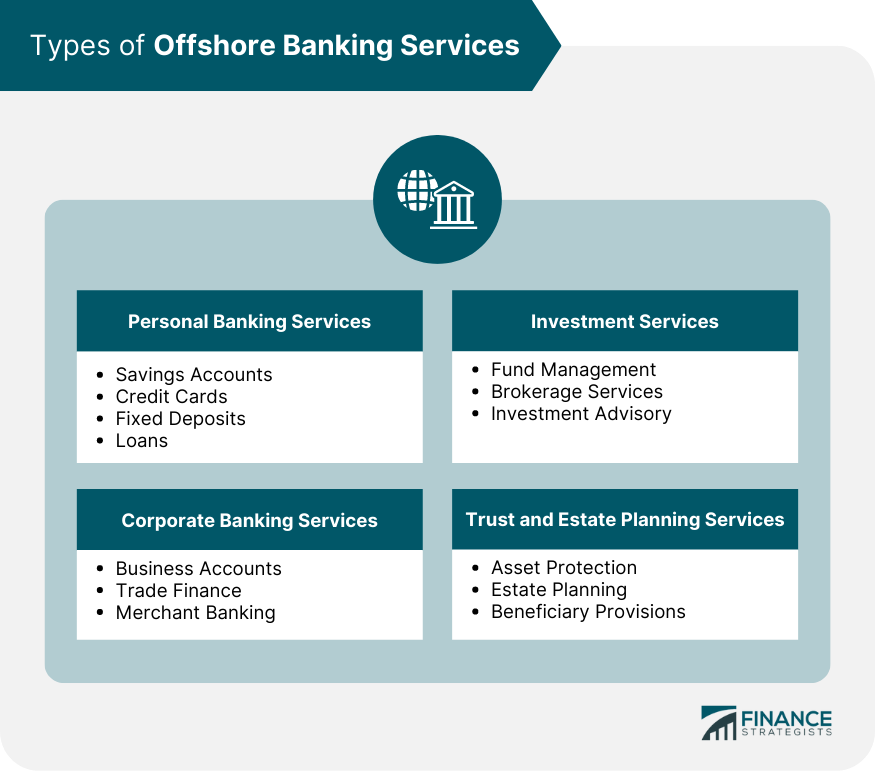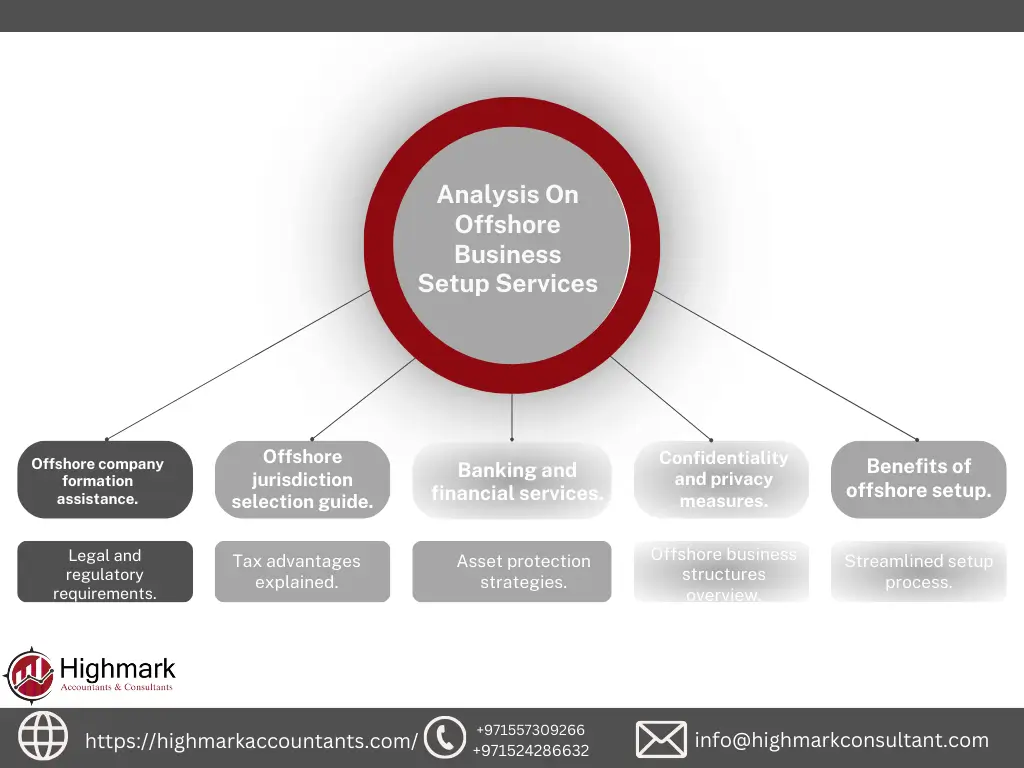Recognizing Offshore Company Formations: A Comprehensive Overview to the Process and Advantages
Offshore firm formations present a critical avenue for business owners looking for to optimize their company operations. These entities commonly provide benefits such as tax obligation benefits, boosted privacy, and durable property security. However, understanding the intricacies of choosing a territory, the development process, and conformity demands is important. As the landscape of global organization evolves, the effects of establishing an offshore firm warrant mindful factor to consider. What actions should one require to browse this facility terrain?
What Is an Offshore Business?
An offshore business is a company entity included outside the territory of its owners' home, usually in a country with beneficial governing and tax environments. These firms can offer numerous purposes, including possession security, worldwide trading, and wealth management. They are generally established in territories referred to as tax obligation places, where business tax prices are missing or low, and personal privacy legislations are strict.
Offshore business may be owned by people or various other company entities and can operate in various fields, including shopping, consulting, and finance. While they provide specific benefits, the regulative and legal structures governing offshore firms vary considerably by jurisdiction. Company owners should navigate these complexities to assure conformity with both neighborhood and worldwide laws. Recognizing the structure and function of offshore firms is crucial for people considering this option for company operations or property administration.
Advantages of Creating an Offshore Firm
While the choice to form an overseas business might stem from numerous strategic considerations, the prospective advantages are compelling for many company proprietors. One substantial advantage is tax obligation optimization; several overseas jurisdictions provide positive tax obligation prices or also tax exemptions, permitting business to preserve even more earnings. Additionally, offshore firms commonly offer boosted personal privacy defense, protecting the identifications of investors and supervisors from public analysis.


Finally, local business owner might find functional flexibility, as overseas territories regularly have fewer governing obstacles, enabling structured monitoring and administration. Collectively, these benefits make offshore company formations an eye-catching choice for many looking for to expand their business horizons.
Choosing the Right Jurisdiction
Picking the suitable jurisdiction for an overseas firm is a vital action in taking full advantage of the advantages laid out earlier. Numerous aspects influence this decision, including tax obligation guidelines, business legislations, and the general organization environment. Jurisdictions such as the British Virgin Islands, Cayman Islands, and Singapore are typically favored for their beneficial tax regimens and robust legal frameworks.
It is very important to take into consideration the particular demands of business, such as personal privacy needs and regulative conformity. In addition, the ease of operating, including the efficiency of business enrollment and banking centers, plays a substantial duty.
Potential owners must likewise evaluate the political security and online reputation of the selected territory, as these aspects can affect long-lasting success. Ultimately, detailed research study and expert appointment are suggested to assure alignment with the firm's goals and to leverage the complete potential of offshore benefits.

The Offshore Business Formation Process
The overseas company development procedure involves a series of essential actions that need mindful preparation and execution. People or services need to choose an appropriate jurisdiction that aligns with their goals, considering aspects such as tax obligation benefits, privacy, and governing atmosphere. Following this, the following action entails selecting the appropriate service structure, such as an International Business Firm (IBC) or Restricted Responsibility Business (LLC)
As soon as the framework is identified, necessary documents, including a business plan, recognition, and proof of address, have to be prepared. Engaging a reliable local representative or provider can simplify this stage, making certain conformity with neighborhood guidelines. After sending the called for documentation to the pertinent authorities, the formation procedure normally finishes in the issuance of a certificate of unification. This record develops the firm as a legal entity, enabling it to conduct business internationally.
Legal Needs and Conformity
Understanding the lawful needs and conformity responsibilities is necessary for any individual seeking to develop an offshore firm. Each jurisdiction has details guidelines that have to be followed, which can include company registration, getting needed licenses, and maintaining local addresses. Offshore Company Formations. It is vital to select a signed up agent who can promote interaction with neighborhood authorities and guarantee conformity with recurring coverage requirements
In addition, lots of jurisdictions need the submission of yearly economic declarations, together with tax filings, even if the business does not generate earnings. Shareholders and supervisors have to be determined, with due diligence treatments typically mandated to verify their identifications. Failure to fulfill these lawful responsibilities can lead to fines or the dissolution of the business. Therefore, possible offshore company proprietors must speak with lawyers experienced in worldwide company regulation to navigate these complexities effectively and assure complete compliance with all regulations.
Tax Effects of Offshore Companies
The tax effects of offshore firms existing substantial benefits that bring in lots of business owners. Understanding the connected compliance demands is crucial for steering the intricacies of global tax laws. This section will certainly explore both the possible benefits and the needed obligations connected to offshore organization structures.
Tax Obligation Advantages Introduction
Overseas business are often checked out with apprehension, they can supply significant tax obligation advantages for individuals and companies looking for to optimize their monetary techniques. Among the main benefits is the possibility for lower business tax prices, which can result in substantial cost savings. Many offshore territories provide beneficial tax regimes, consisting of no or minimal tax on revenues, funding gains, and inheritance. Additionally, offshore business can help with global company procedures by reducing tax responsibilities connected with cross-border transactions. This structure might also enable tax deferral possibilities, enabling profits to expand without immediate taxation. Ultimately, these benefits add to improved financial efficiency and property security, making overseas companies an appealing option for wise investors and business owners.
Conformity Requirements Discussed
Offshore companies may provide tax obligation advantages, yet they additionally feature a collection of conformity needs that should be very carefully navigated. These entities undergo certain reporting commitments, which vary greatly depending on the jurisdiction. Commonly, offshore business need to keep precise monetary documents and send annual economic statements to abide by neighborhood policies. In addition, many jurisdictions call for the disclosure of beneficial ownership to deal with money laundering and tax obligation evasion. Failure to abide by these conformity procedures can cause severe charges, consisting of fines and prospective loss of organization licenses. Recognizing the local tax laws and international arrangements is necessary, as they can impact tax obligation liabilities and overall functional legality. Engaging with financial and legal specialists is recommended to ensure full compliance.
Preserving and Handling Your Offshore Business
Maintaining and taking care of an overseas firm involves adhering to different continuous conformity requirements crucial for lawful procedure. This includes diligent economic record maintaining and an understanding of tax responsibilities significant to the business's jurisdiction. Reliable monitoring not only guarantees regulatory compliance yet additionally supports the company's financial health and long life.
Recurring Conformity Demands
Ensuring continuous conformity is vital for any type of entity operating in the offshore field, as why not try these out failure to satisfy governing needs can lead to significant penalties and even dissolution of the company. Offshore firms must follow regional laws, which might include yearly declaring of financial declarations, payment of essential costs, and preserving a registered office address. In addition, companies are commonly needed to designate a neighborhood representative or agent to facilitate communication with authorities. Routine updates on modifications in regulations or tax requirements are crucial for compliance. In addition, adherence to anti-money laundering (AML) and know-your-customer (KYC) regulations is necessary. By keeping organized records and staying informed, offshore business can ensure they stay certified and reduce threats connected with non-compliance.
Financial Record Maintaining
Efficient financial record maintaining is essential for the effective management of any type of overseas business. Preserving precise and thorough monetary records aids in tracking the company's efficiency, assuring conformity with regional regulations, and promoting notified decision-making. Firms should implement methodical procedures for recording earnings, costs, and transactions to develop openness and responsibility. Using audit software program can enhance this procedure, permitting real-time financial analysis and reporting. Consistently examining financial declarations helps recognize trends, analyze success, and handle cash money flow efficiently. Furthermore, it is crucial to firmly store these documents to protect blog sensitive details and guarantee easy access during audits or monetary testimonials. By focusing on precise economic record maintaining, offshore firms can improve operational effectiveness and assistance lasting success.
Tax Commitments Summary
Recognizing tax responsibilities is essential for the appropriate management of an overseas firm, as it directly affects monetary efficiency and conformity. Offshore business might undergo different tax laws depending on their territory, consisting of corporate taxes, value-added tax obligations, and withholding tax obligations. It is important for entrepreneur to remain educated concerning their tax duties, as failing to comply can result in fines and legal concerns. Furthermore, several offshore territories supply tax rewards, which can significantly benefit companies if navigated correctly. Involving a knowledgeable tax obligation expert or accountant focusing on global tax regulation can aid ensure that firms fulfill their obligations while maximizing their tax obligation techniques. Ultimately, diligent tax obligation monitoring adds to the total success and sustainability of an offshore entity.
Regularly Asked Inquiries
Can I Open a Checking Account for My Offshore Business From Another Location?
The ability to open up a financial institution account for an overseas firm from another location depends upon the bank's plans and the territory's regulations. Many financial institutions provide remote solutions, but certain requirements might vary substantially in between institutions.
What Are the Prices Associated With Forming an Offshore Company?
The prices entailed in creating an offshore company generally include registration charges, legal and consulting costs, and continuous upkeep charges. These expenses differ significantly based upon jurisdiction, complexity of the organization framework, and details solutions required.
Exist Constraints on Who Can Be a Shareholder?
Limitations on shareholders vary by jurisdiction. Some countries might impose restrictions based upon citizenship, residency, or organization type - Offshore Company Formations. It's essential for prospective capitalists to research study particular guidelines suitable to their chosen offshore area
For how long Does the Offshore Business Formation Process Usually Take?
The offshore firm development process usually takes between a couple of days to a number of weeks. Aspects influencing the timeline consist of jurisdiction needs, file preparation, and responsiveness of appropriate authorities associated with the registration process.
What Takes place if I Fail to Abide By Neighborhood Regulations?
Failing to abide with regional regulations can result in serious penalties, consisting of fines, lawsuit, the original source or loss of organization licenses - Offshore Company Formations. It may additionally harm the company's credibility and hinder future service possibilities in the territory
An offshore company is a business entity integrated outside the territory of its owners' residence, typically in a nation with positive regulative and tax obligation atmospheres. One significant benefit is tax obligation optimization; numerous overseas territories supply positive tax prices or also tax obligation exemptions, allowing firms to keep more profits. Overseas companies are commonly watched with skepticism, they can supply considerable tax obligation benefits for services and individuals looking for to enhance their economic strategies. Additionally, offshore business can assist in global service procedures by minimizing tax obligation obligations connected with cross-border transactions. Offshore firms might be subject to numerous tax legislations depending on their territory, including corporate tax obligations, value-added tax obligations, and withholding taxes.